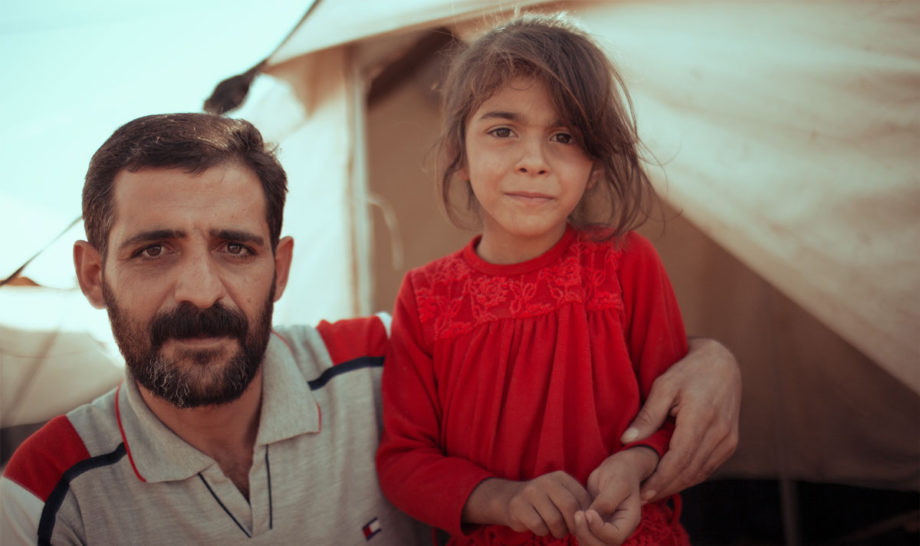In our previous post, long-term Frontiers worker Sean shared how God is providing unique and strategic ways to serve Muslims who have been displaced by war. Here, Sean describes his team’s strategy for fostering hope among these displaced families.
What can we do in light of the great need that refugees and internally displaced persons (IDPs) face?
Much, in fact.
In our service to displaced Muslim families, we have set before us these three goals:
- Increase people’s capacity to live.
We help people with basic necessities so they can focus their energies and resources on earning money for food. Sometimes that means we supply them with a refrigerator, or cushions to sleep on, or a sewing machine for a seamstress.
Sometimes, it means doing something odd—like building a concrete path so that a wheelchair-bound man doesn’t have to be carried to the toilet.
We distribute bags of food. But these are not intended to be nutritionally balanced. Instead, we provide items that are more difficult for a household to purchase—such as large jugs of cooking oil. That way, they can focus on getting fresh ingredients and day-to-day food.
We try to create an environment that allows families to move out of survival mode and begin finding hope for tomorrow.
- Let people know they are not alone.
We knock on doors. We ask displaced families how they are doing. We know their names and their stories.
A boy with cerebral palsy lights up each time we come—not because we have been able to help him, but because we always stop, go inside, and talk with him.
There’s a man whose wife has stage III melanoma. We can’t help with cancer, but we always ask how his wife is and how the latest round of chemotherapy went.
The lady to whom we gave a new sewing machine is always eager to show us her latest project.
Virtually all the families we help do not receive any other form of assistance. Most humanitarian organizations work solely in camps for refugees and IDPs. But those camps are beyond capacity and are no longer accepting new residents. Instead of directing our efforts to camps and large cities, we serve families living in places that are harder to access.
And we want to let them know they are not alone or forgotten.
- Foster hope.
When you feel hopeless, hot, cold, tired, or unable to rest—while also dealing with emotional trauma from war—it is easy just to give up.
We can’t meet all the needs of refugees and IDPs. But we can try to create an environment with enough stability that gives them the hope they need to go out and look for work.
In this way, we do our best to love each family with whom we work.
I recently saw something that captures the sort of hope we are trying to foster.
On a recent round of aid deliveries, a smiling young refugee ran up and jumped into the pickup with our local colleagues. The boy didn’t ask them for anything; he just wanted to say hello and chat with them.
Generations of animosity stand between this boy’s people and the people of the men in the truck. Historically, they have viewed one another as enemies.
But as Muslim-background followers of Jesus, my colleagues have built relationships with these refugees and IDPs, their historical enemies. It’s an unprecedented act of reconciliation in a region that has long been divided by sectarianism.
As these brothers display the redemptive life of Jesus Christ, they are overcoming centuries of hatred. Displaced persons, such as this young boy, are choosing to live their lives differently.
Pray for God’s love to be powerfully demonstrated to Iraqis and Syrians who have lost homes and livelihoods to war.
Ask the Lord to minister to displaced Muslim families—through teams like Sean’s—with the unfaltering hope of Jesus Christ.
**This account comes from a long-term worker. Names and places have been changed for security.**
Original article: FrontiersUSA.org/blog/article/3-ways-we-foster-hope

